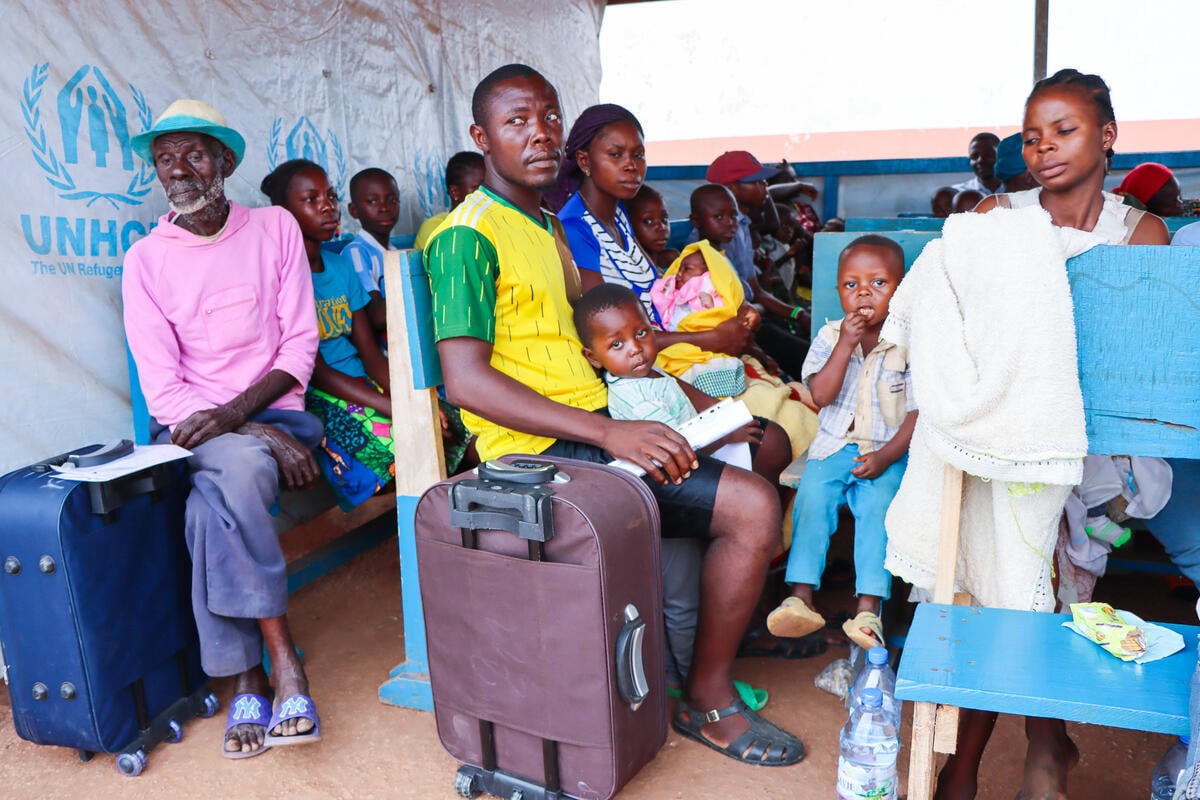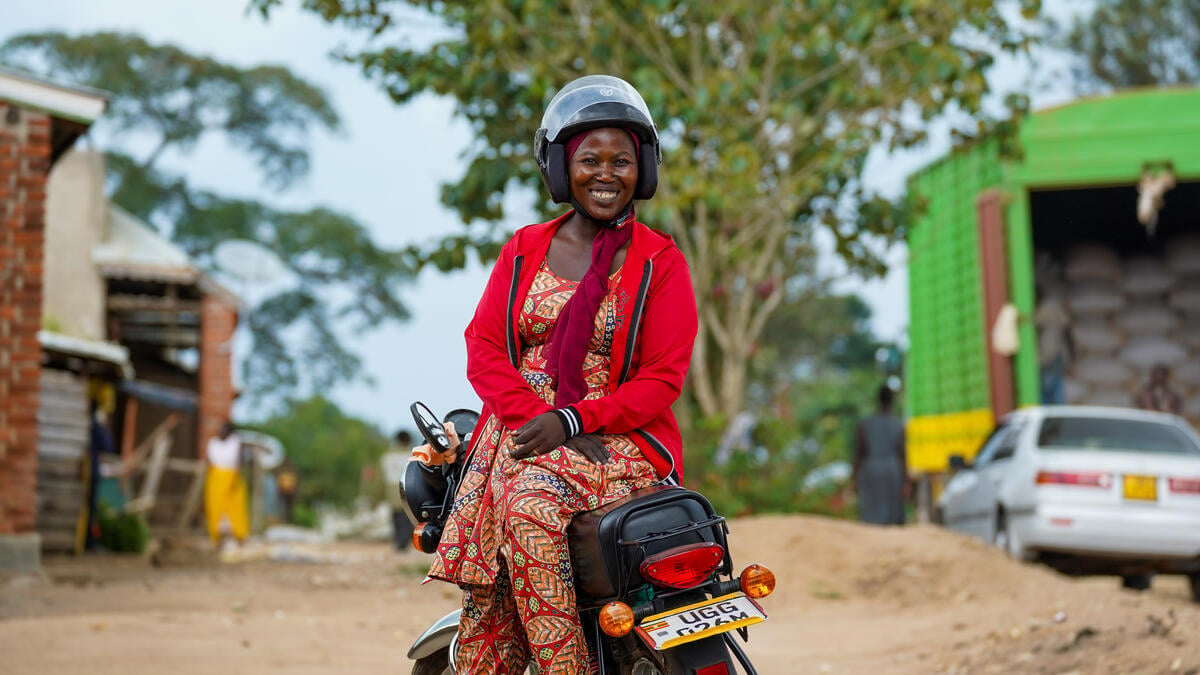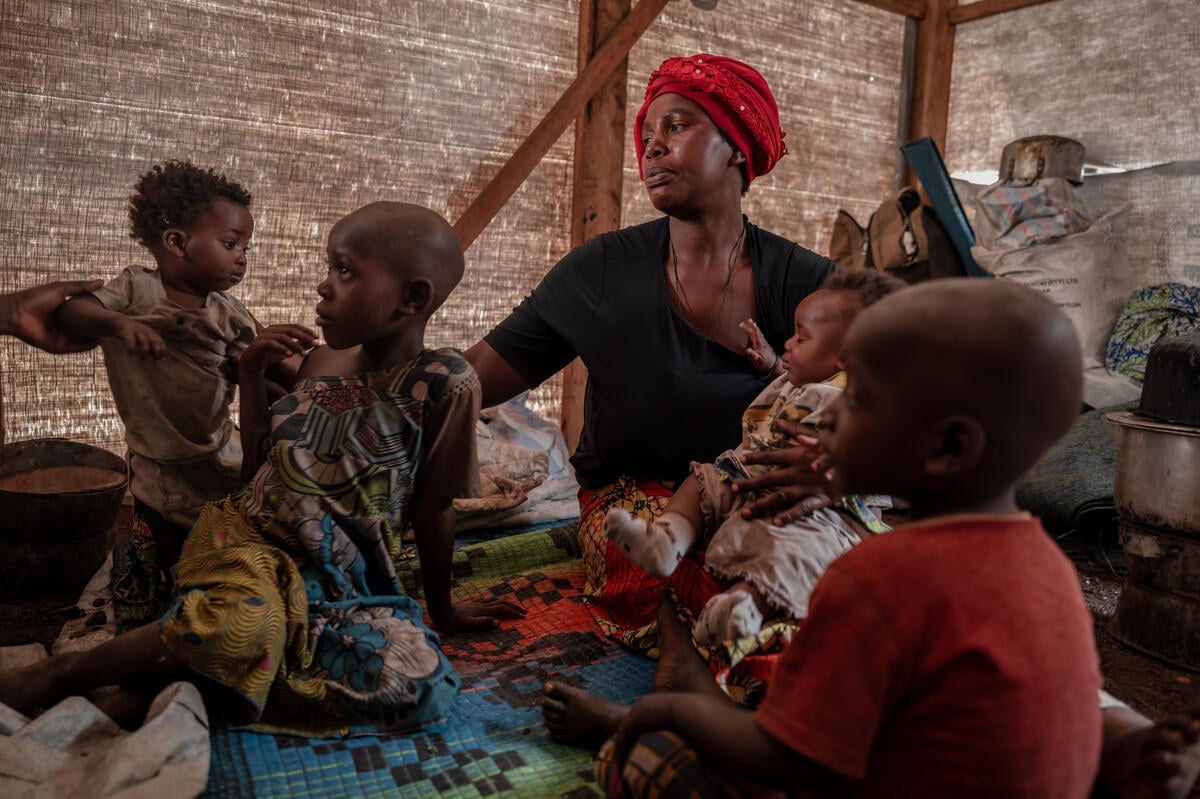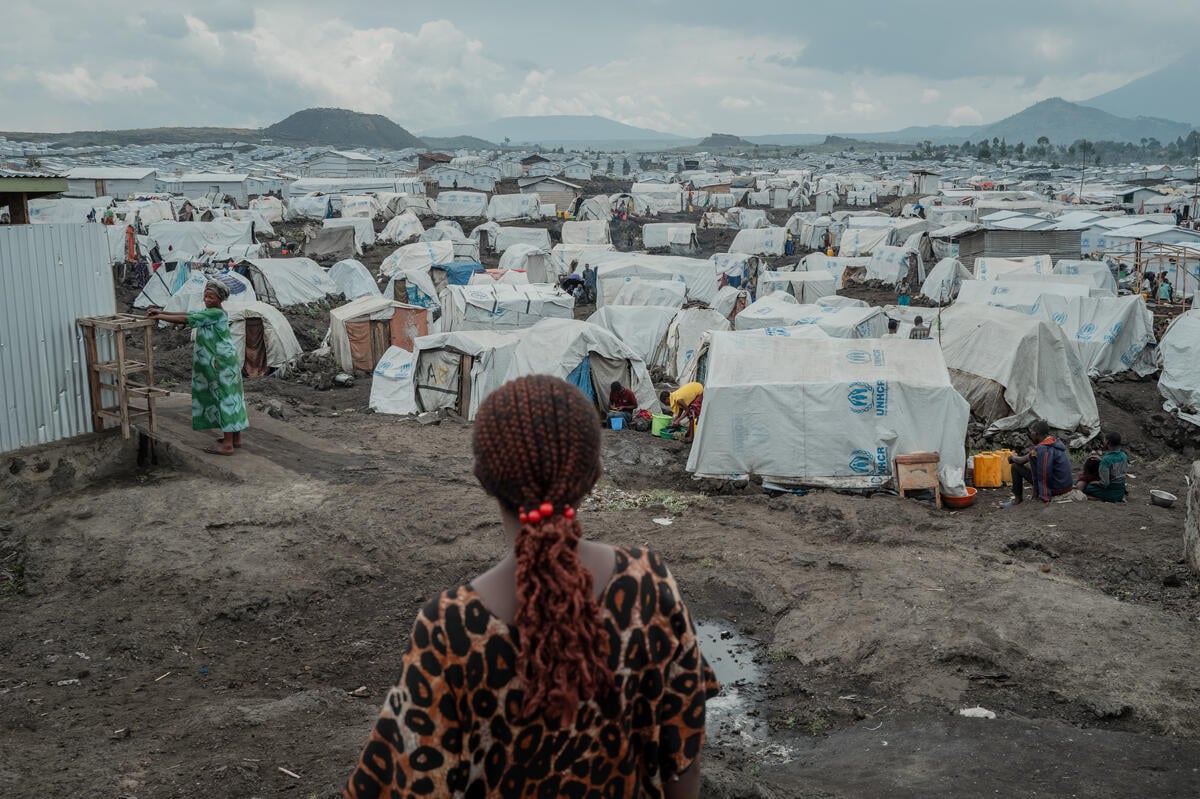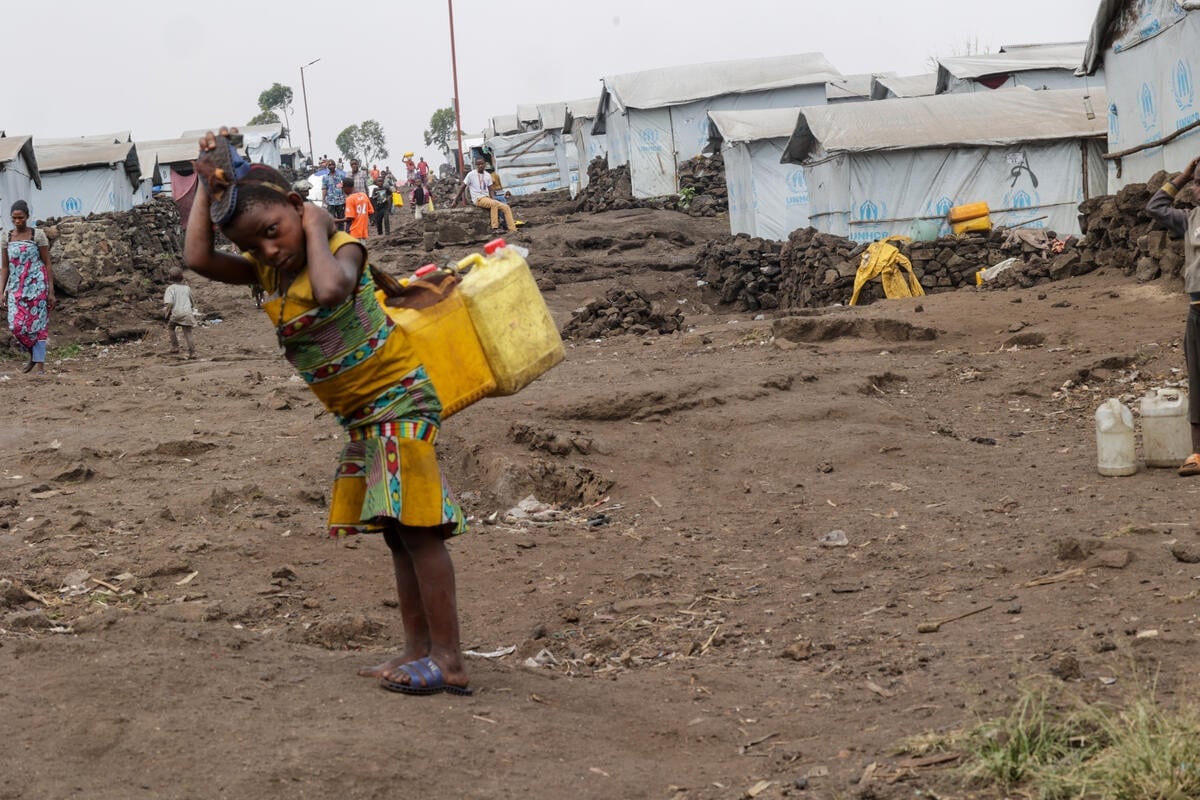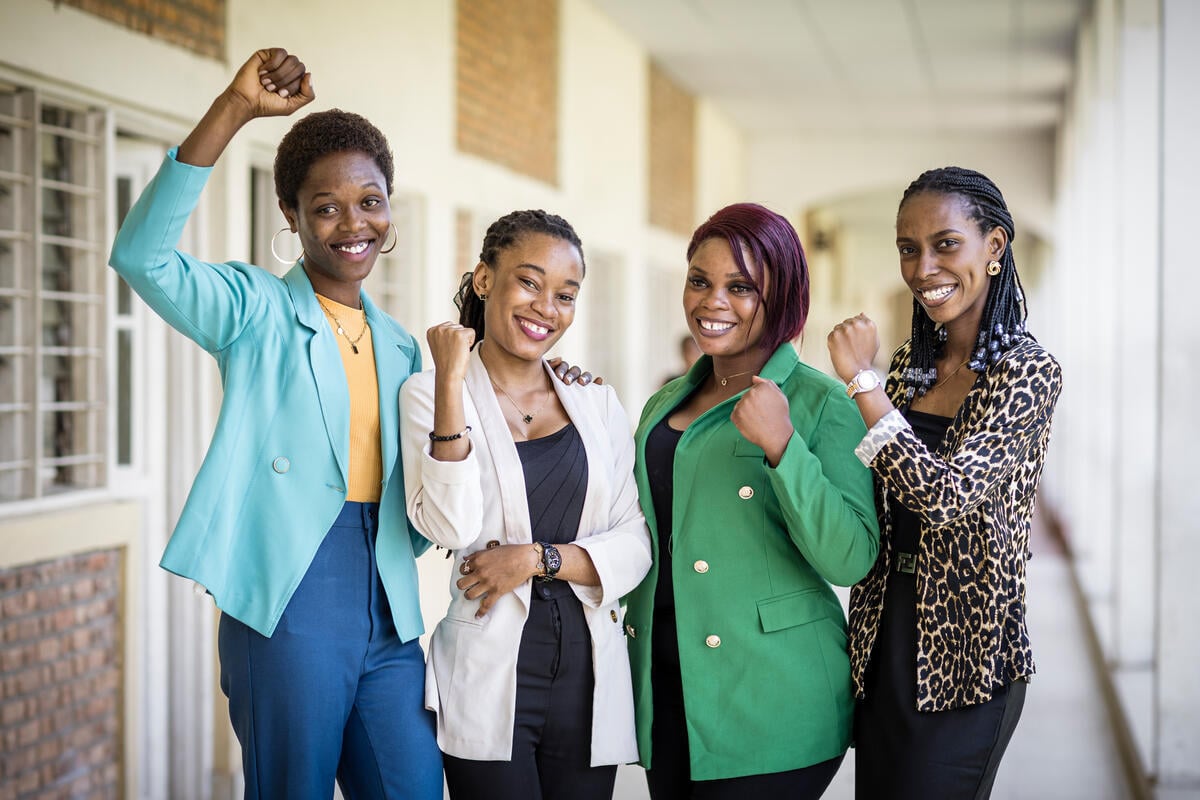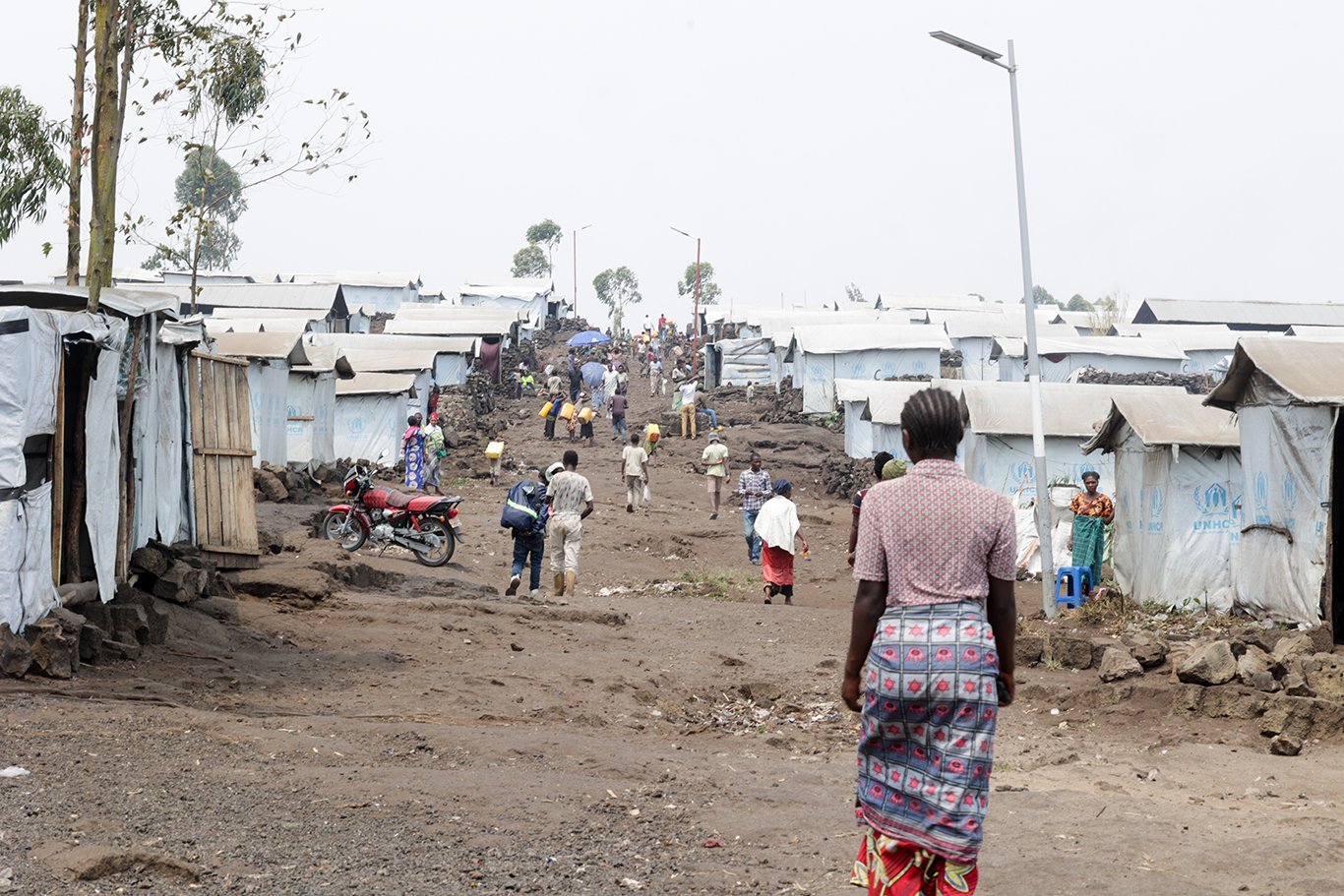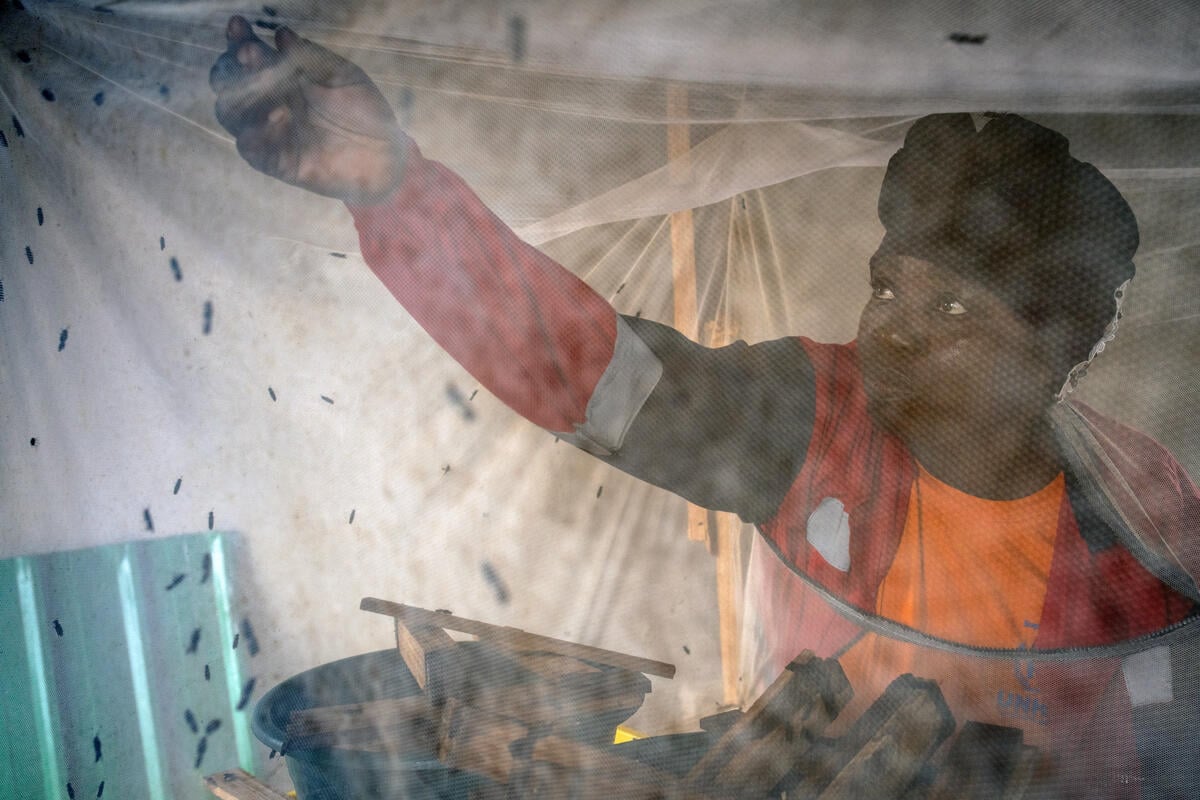UNHCR seeks assurances to returnee group's safety in South Kivu
UNHCR seeks assurances to returnee group's safety in South Kivu
BUJUMBURA, Burundi, Sept 28 (UNHCR) - The UN refugee agency has urged the Congolese authorities to ensure the safety of a group of Congolese refugees who have chosen to return from Burundi despite hostilities at home.
On Friday, a group of 366 Congolese refugees - including 112 women, and 118 children below the age of 12 - left exile in Burundi and crossed back into neighbouring Democratic Republic of the Congo. They had earlier been stopped at the border and told to turn back to Burundi. When they refused, they were forced to spend two nights at the border without proper shelter.
UNHCR has no access to the border region, but the UN Mission in Congo (MONUC) and military observers were deployed there last week to monitor the situation of the refugees, who are Banyamulenge, Congolese of Tutsi origin.
In the eastern Congolese town of Uvira, riots broke out to protest the group's return. The demonstrations turned violent, wounding several people. When the returning refugees were transferred to a transit centre outside Uvira, their convoy was stoned along the way. Congolese soldiers are now protecting the transit centre, and MONUC troops are on the ground.
There has been heightened tension in eastern DRC's South Kivu region since the town of Bukavu was taken over by two dissident Tutsi army officers in June.
"UNHCR is calling on the authorities in the DRC, especially the local authorities in South Kivu, to ensure the safety of Congolese nationals who choose to return to their country after taking refuge in Burundi," emphasised UNHCR spokeswomen Jennifer Pagonis in a news briefing in Geneva on Tuesday.
The Congolese Ministry of Interior has said that it would be better if the group in question goes back to Burundi for now, but MONUC has stressed that any Congolese nationals should be free to return if they wish, and that it is the state's duty to protect them.
UNHCR has negotiated with the Burundian authorities to keep the border open in case the group decides to seek refuge in Burundi again.
Prior to Friday's return, this group was among some 20,000 people living in Burundi's insecure border region after fleeing South Kivu in June. But when UNHCR offered to relocate them to a camp in inland Burundi, the group refused.
The agency has met similar resistance from other refugees who remain along the border, despite the fact that more than 150 refugees were killed in an August attack on Gatumba border transit centre.
So far, only 120 Congolese refugees have chosen to relocate to Gihinga camp in central Burundi since UNHCR started transfers to the new camp last week. The agency is concerned that the refugees may be under peer pressure to repatriate to the DRC, especially after a recent visit by the vice-governor of South Kivu to ensure them that it was safe to return.
UNHCR's position remains that the situation in South Kivu is still not stable enough to ensure that refugees can go back safely. The agency will continue counselling refugees on the volatile conditions in South Kivu, and run further relocation convoys to Gihinga camp this week.


